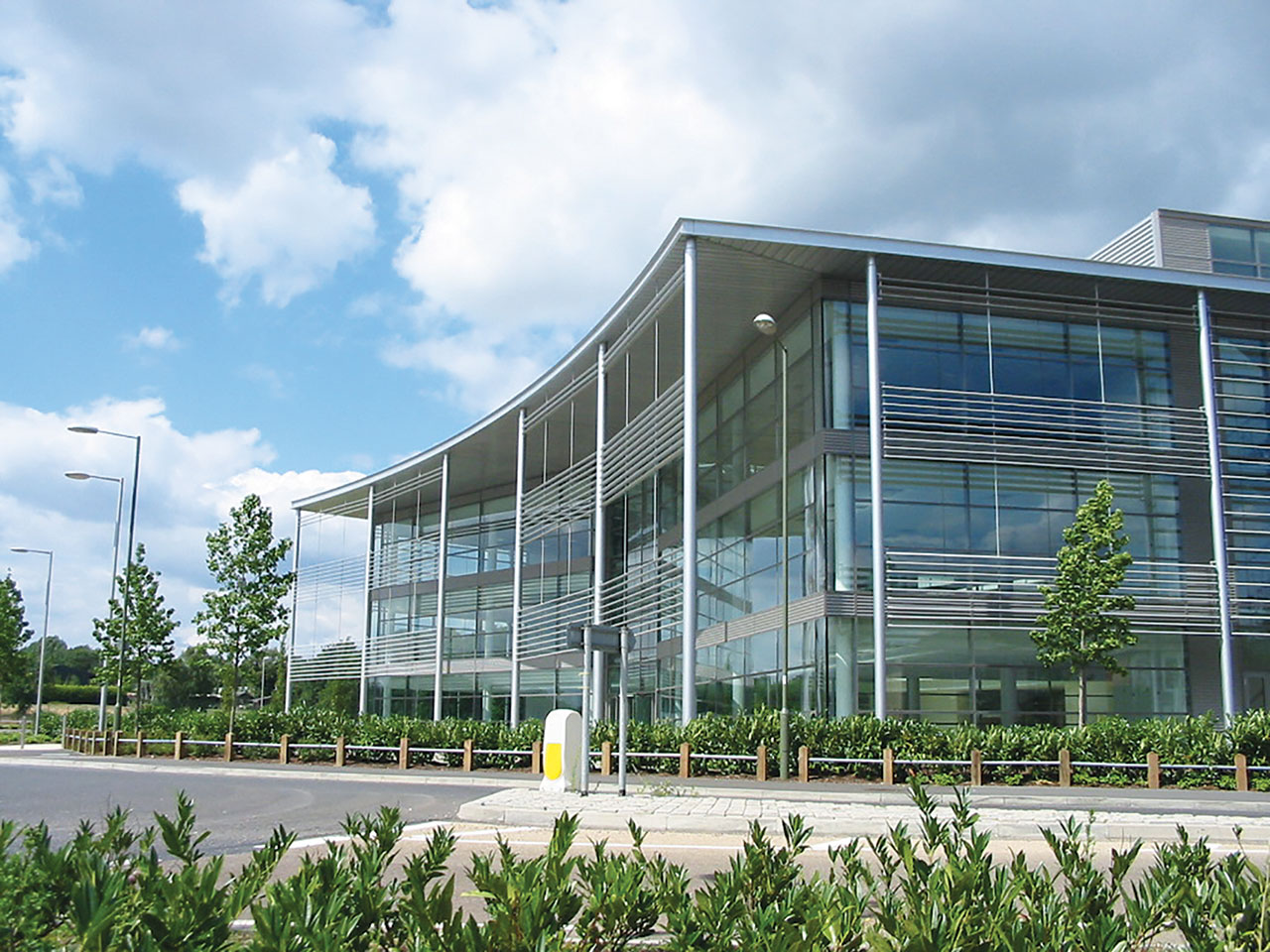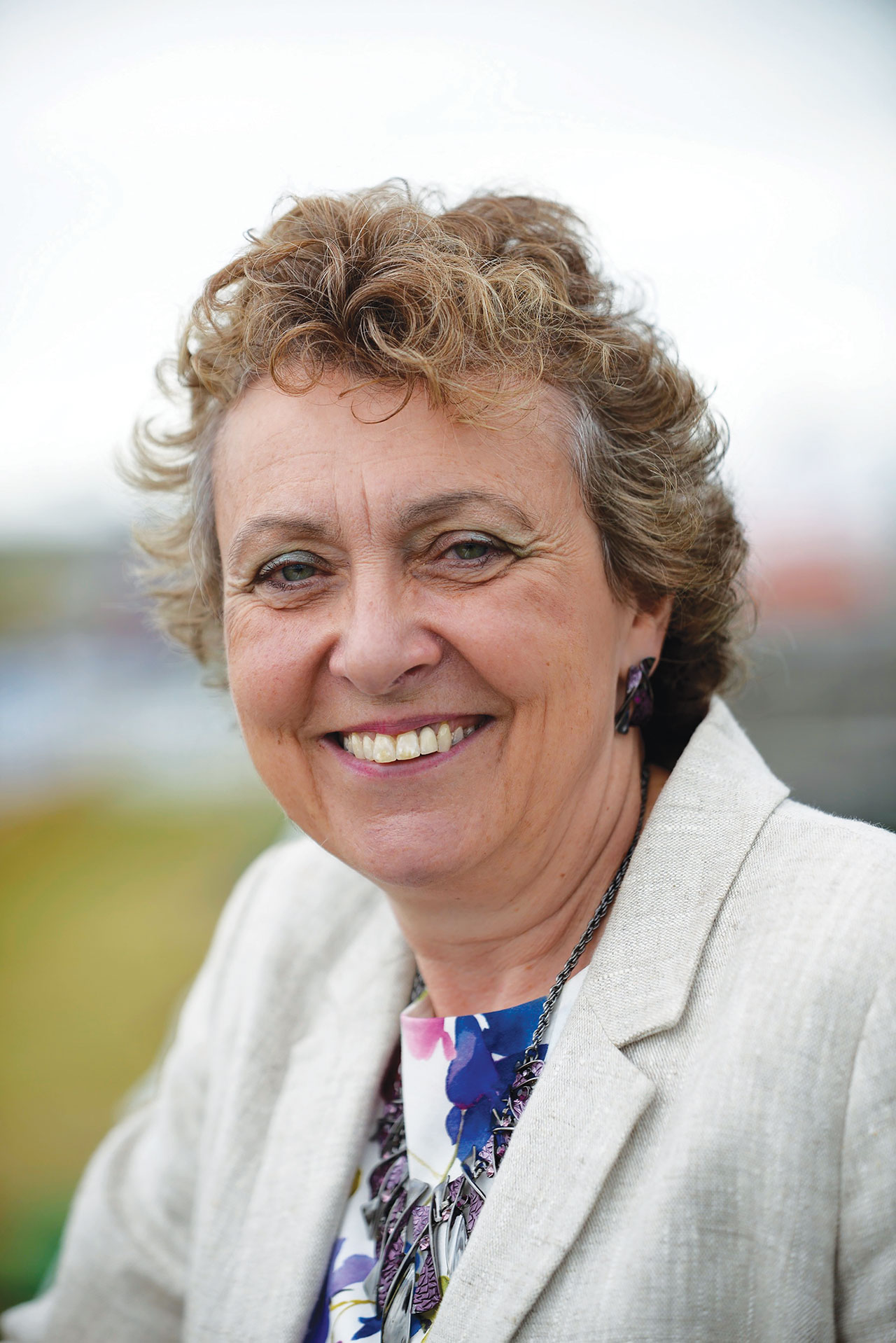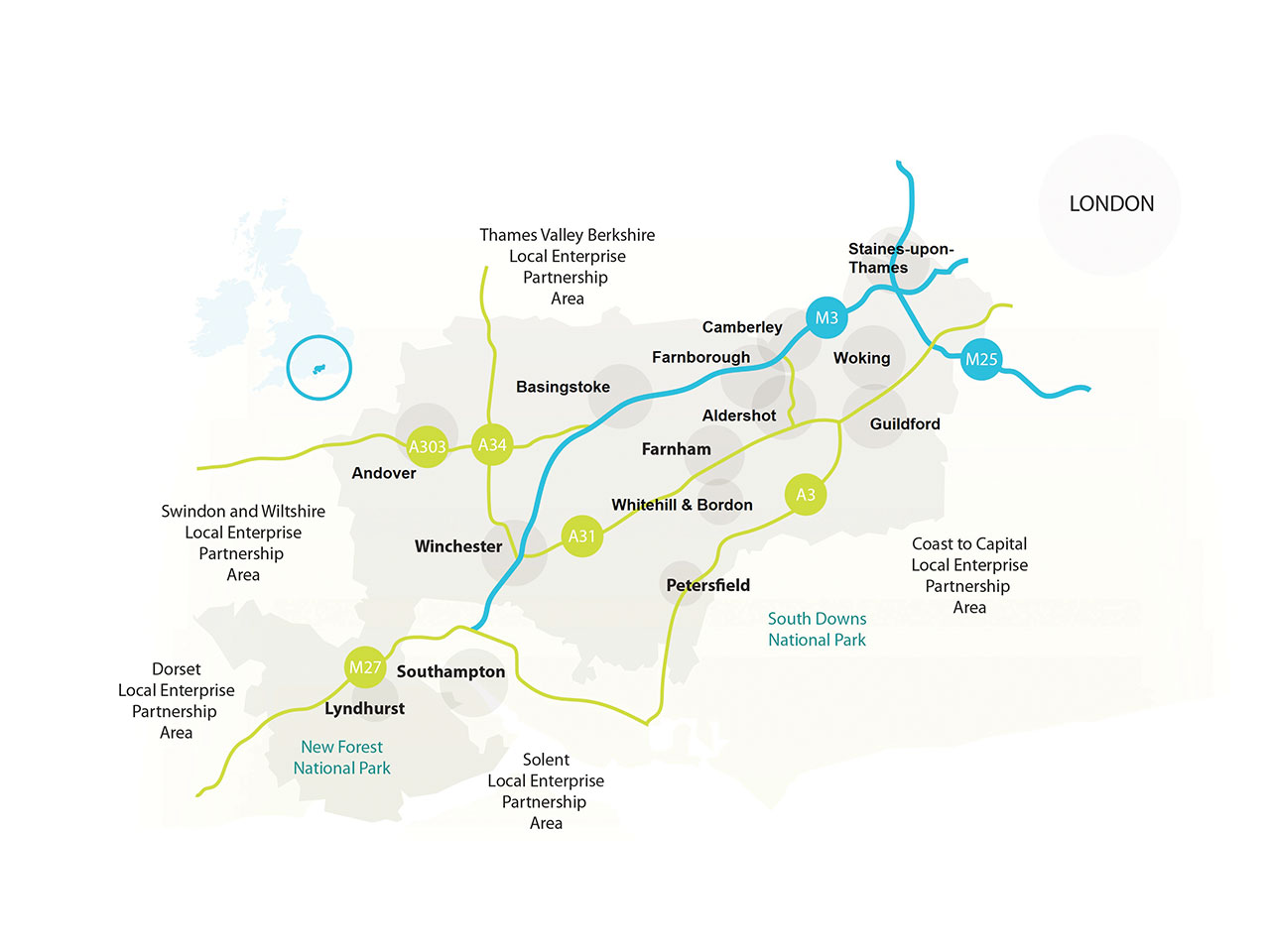
Kathy Slack was awarded the OBE in the 2017 New Years Honours List for services to the economy and community of South East England.
The award was made in recognition of Kathy’s dedication and passion for championing collaborative ways of working with the private, public and not for-profit sectors across the South East to grow and strengthen the economy.
She has nearly forty years of experience working with businesses and people to support economic growth. She has in the past helped the long term unemployed get jobs and created a national initiative to get girls to take up computer skills.
While at the South East England Development Agency, she championed economic growth across the South East and now at Enterprise M3 she has successfully secured over £250m of funding for the Enterprise M3 area (From Staines-upon-Thames to the New Forest, covering mid to North Hampshire and South and West Surrey) for infrastructure development, skills and enterprise and innovation. As this issue of Surrey Chambers Magazine has an Inspirational Women theme, Maarten Hoffmann asked Kathy about her career journey and the issues facing women looking to make their way in business.
Did you face any discrimination when you were coming up through the ranks?
I’m not immediately conscious of it. I think probably it was there in my early years but there’s something about having an inner strength and con dence that allows you to move forward. It comes down to personalities and I am conscious people deal with these issues differently. Women can sometimes erect their own glass ceilings. It’s about the con dence when you are looking at jobs. When a woman sees a job advert and say “Oh well, I haven’t got that, that and that and therefore I can’t apply”, but a man will look at it completely differently.
The other thing that’s important in this debate is your partner. It doesn’t matter what gender your partner is. My husband has been hugely in uential in my success because he brought our two sons up. People don’t always have that. My husband had his own business but in the early years, it was a financial decision. I earned more, so I went back to work. At the time, in the early 1990s, there was a mother-and-toddler group in our village, and they had to change it to a parent-and toddler group. This wasn’t that long ago!
Do you feel guilty that you missed out on some aspects of being a mother? And do you believe your children respect you for this decision you made?
I don’t feel guilty. I made sure that I had quality time with them. I learnt a lesson early on when listening to a self-improvement tape in the car on time management and it stuck with me. It was about someone reaching the Pearly Gates and there’s somebody there facing an angel holding a basket of stone tablets which say: “I wish I had done ...” The telling thing was that the basket has already got some things in it. I vowed then to keep the tablets down to a minimum. It is no good saying I wish I’d gone to that Christmas play - you need to make the time to attend. So, ever since then I never missed a Christmas play and I never missed a sports day. I didn’t get it totally right but you need to take a conscious decision which means you’ve got to stop doing something else. They’ve grown up very balanced children. I am always so proud of my children.
As someone who has achieved success at work, do you find yourself in the position where you are role a model for younger women?
I always say “You have to be yourself.” Sometimes that means you’ve got to be quite brave, as the environment I work in tends to be male dominated. With age and experience comes confidence, which is why it is sometimes difficult to advise young people as the help that is needed is about developing confidence.
Women are trying to fit into a male-designed world. How long will it take for that to be truly equal in the way we work?
This comes back to technology as well because what is also changing is the way we work. I am very confident that some of the old ways will start to chip away. You’ve got people moving around and far more flexible working, and I think that is critical. Millennials are less driven by money; what they’re really interested in is exibility and cultures of organisations. It will change for both men and women.
One of the things I’ve noticed within my own team is once you start getting some younger people within your team, they make a huge difference because they come with that technology awareness.
They are also keen to throw in ideas and can be gutsy and less worried about where they fit in the organisation. They’re quite happy to make changes and that’s something I really love.
Do you have a healthy work/life balance?
It’s a difficult question as I love work so much. I like to read and Twitter has been a joy to me, a brilliant way to pick up on things. Is this life or is it work? It’s only tricky when work is becoming too stressful. I have to rein it back sometimes and be aware that what is good for you is not necessarily good for others. I was advised that you always need to feed your brain. I often ‘feed my brain’ just before I go to sleep and in the morning the solution is there.
I don’t have any particular outside activities. Quite simply I enjoy the company of my family and friends, and I do try to keep the weekends free.
Who were your main influences starting out on your career?
I was the first person in my family to go to university, but I wouldn’t have gone if the school hadn’t spoken to my parents about this possibility. It hadn’t occurred to me before. I clearly remember the two teachers who were most inspirational and I can still hear their voices. Both were women.
What was your biggest break?
I’m not sure break is the right word. It’s all about what you do when opportunities come along. It’s about being proactive. Most of my biggest steps in my career have come as a result of adversity. I have twice been ‘restructured’ which can be quite depressing but each time it forced me to take a different direction and in doing so, take a step up. I didn’t realise that I could do anything different. I lost a good position at the Government Office for the South East due to a restructure and I was very worried, but when I went to a new role, I just flew.
It happened again when the new role at the South East England Development Agency was restructured. The job gave me a feeling of being secure, but sometimes it’s good not to feel secure as you HAVE to perform well and keep your eyes open. It’s all about seizing opportunities.
Do you have unfulfilled ambitions?
I have lots! Professionally, I want the LEP, which is known as one of the best in the UK, to be distinguished for the impact it makes on business, and I believe that will come. Personally I want to keep growing my mind. I am five years away from state pension age but I couldn’t imagine ever fully retiring. I want to do some different things.








